The Official Spokesperson for the Ministry of Foreign Affairs Dr Majed bin Mohammed Al Ansari Friday announced that the first batch of freed Palestinian prisoners and Israeli hostages have been reunited with their families, as part of the implementation of the Humanitarian Pause between Israel and Islamic Resistance Movement (Hamas) that was mediated by Qatar, Egypt and the United States of America.
In a statement to Qatar News Agency (QNA), Dr Al Ansari stated that the first 39 Palestinian women and children have been released from Israeli prisons and reunited with their families.
He said that the first 13 hostages, all women and children, have been reunited with their families in Israel, adding that they were supervised safely out of Gaza by the International Red Cross as part of the implementation of the Humanitarian Pause.
In addition, 10 Thai citizens and a Filipino citizen were also handed to the International Red Crescent as part of ongoing mediation, outside the framework of the agreement of the Humanitarian Pause, Dr Al Ansari said.
Dr. Al Ansari affirmed that the humanitarian aid trucks scheduled to enter Gaza today have been able to cross the border to deliver critical aid supplies to the Palestinian brothers besieged in the Strip.
He added: "We have maintained direct lines of communication with both sides and the International Red Cross throughout the process. We continue to monitor the situation and are relaying information between both sides and the International Red Cross in real-time to ensure that any issues that occur are immediately addressed. We also remain in close contact with our regional and international partners regarding the current situation."
Concluding his remarks to QNA, the Official Spokesperson for the Ministry of Foreign Affairs said: "We express our thanks to all parties for their cooperation so far and hope to build momentum in the coming hours and days towards extending this pause beyond the initial four-day period."
Qatar has led weeks of intense negotiations, coordinating with the US and Egypt, to reach an agreement for the freeing of 50 civilian hostages from Gaza in return for the release of Palestinian prisoners, a four-day truce and access for humanitarian aid.
The hostages were transferred out of Gaza and handed over to Egyptian authorities at the Rafah border crossing, accompanied by eight staff members of the International Committee of the Red Cross (ICRC) in a four-car convoy, the ICRC said.
The names of the Israeli hostages were released after they were freed. They included four children accompanied by four family members, and five other elderly women.
Corinne Moshe, daughter-in-law of 72-year-old Adina Moshe, said her husband and his siblings were waiting at a hospital to be reunited with their mother. "I miss her very, very much, I want her to be back already. I want to have dinner with her and the entire family again," she said. "Grandmother is a strong woman. She raised almost all the children of Kibbutz Nir Oz."
The Israeli military said the released hostages underwent an initial medical assessment inside Israeli territory before being taken to Israeli hospitals to be reunited with their families.
Under the terms of the four-day Israel-Hamas truce, 50 women and children hostages are to be released over four days, in return for 150 Palestinian women and children among thousands of detainees in Israeli jails. Israel says the truce could be extended if more hostages are released at a rate of 10 per day.
Those released on Friday were exchanged for 24 jailed Palestinian women and 15 teenagers. In at least three cases, before the prisoners were released, Israeli police raided their families' homes in Jerusalem, witnesses said. Police declined to comment.
A source briefed on the negotiations said the release of the Thai workers, who were all men, was unrelated to the truce talks and followed a separate track mediated by Egypt and Qatar.
Thai and Filipino farmworkers employed in southern Israel were among around 240 hostages dragged back to Gaza by gunmen when Hamas fighters launched a killing spree on Oct. 7.
Thai Prime Minister Srettha Thavisin said in a social media post that 12 Thai workers had been freed, two more than the figure given by the Qataris. No reason for the discrepancy was given.
Earlier on Friday, combat between Israeli troops and Hamas fighters halted for the first time in seven weeks.
No big bombings, artillery strikes or rocket attacks were reported, although Hamas and Israel both accused each other of sporadic shootings and other violations. Both said the war would resume on full throttle as soon as the truce was over.
In Khan Younis town in southern Gaza, streets filled with people venturing out of home and shelters into a landscape of buildings flattened into heaps of rubble. Displaced families with small children carried belongings in plastic bags, hoping to return at least temporarily to homes they had abandoned earlier in the war.
"I am now very happy, I feel at ease. I am going back to my home, our hearts are rested," said Ahmad Wael, smiling as he walked carrying a mattress balanced on his head. "I am very tired of sitting without any food or water. There (at home) we can live, we drink tea, make bread."
In northern Gaza's combat zone, viewed from across the fence in southern Israel, there was no sign of the warplanes that have thundered through the sky for weeks, explosions on the ground or the contrails of Hamas rocketfire. Just one plume of smoke was visible in the early afternoon.
Columns of Israeli tanks rolled away from the Gaza Strip's northern end in the morning, while aid trucks entered from Egypt at the southern end.
Hamas confirmed that all hostilities from its forces would cease. But Abu Ubaida, spokesperson for Hamas' armed wing, said in a video message that this was a "temporary truce" and called for an "escalation of the confrontation...on all resistance fronts", including the Israeli-occupied West Bank.
Israeli Defence Minister Yoav Gallant spoke similarly: "This will be a short pause, at the conclusion of which the war (and) fighting will continue with great might and will generate pressure for the return of more hostages."
Israel launched its assault on Gaza after Hamas fighters burst across the border fence into southern Israel on Oct. 7, killing 1,200 people and seizing about 240 hostages, according to Israeli tallies. Since then, Israel has rained bombs on the Hamas-ruled enclave, killing some 14,000 Gazans, around 40% of them children, according to Palestinian health authorities.
Hundreds of thousands of Gaza's 2.3 million people have fled their homes to escape the violence, including most people in the northern half of Gaza including Gaza City, which Israel ordered evacuated and has pulverised in its ground assault.
Gaza residents said the Israelis had dropped leaflets warning people not to travel back to the north, and have fired over the heads of some people who were trying to get back into Gaza City.
James Elder, spokesperson for the U.N. children's agency Unicef, told Reuters from inside southern Gaza that the agency was pleading for the truce to be made permanent.
"We cannot in all decent conscience go from a four or five day pause into killing of children again."
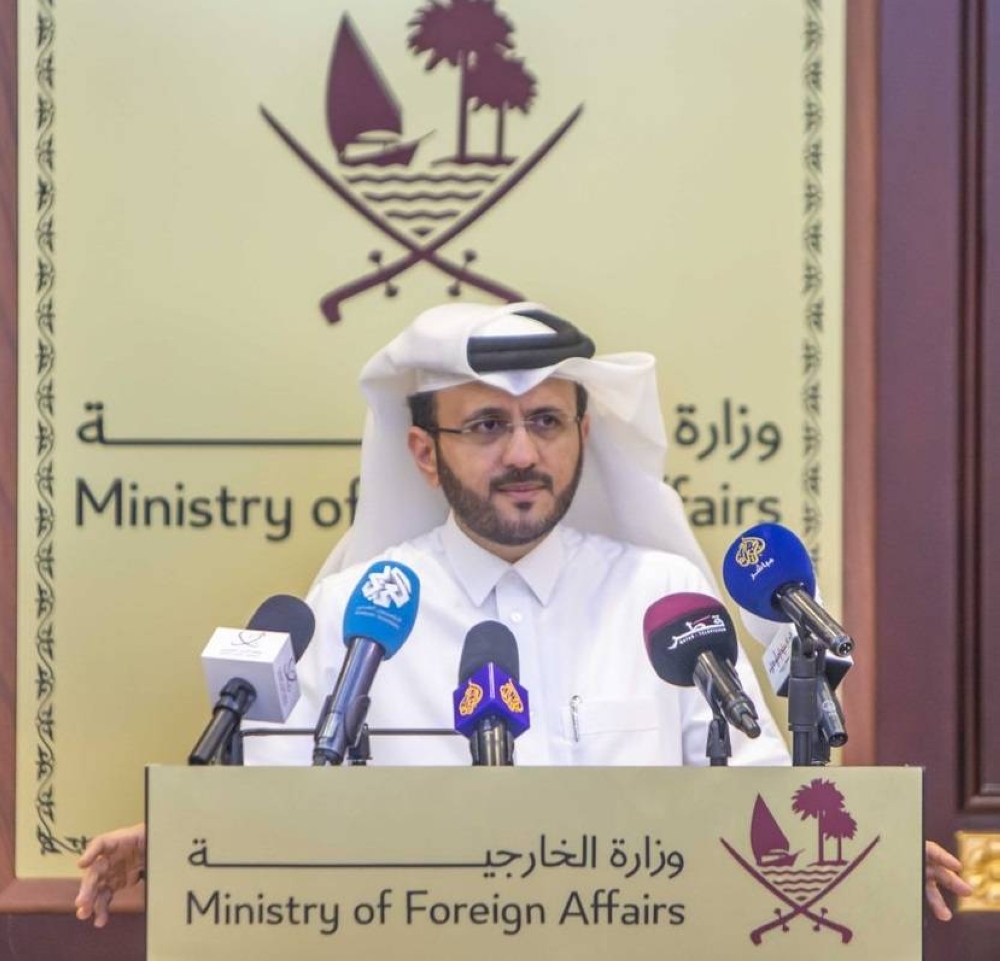
Advisor to Prime Minister and Minister of Foreign Affairs, and Official Spokesperson for the Ministry of Foreign Affairs, Dr Majed bin Mohammad al-Ansari.
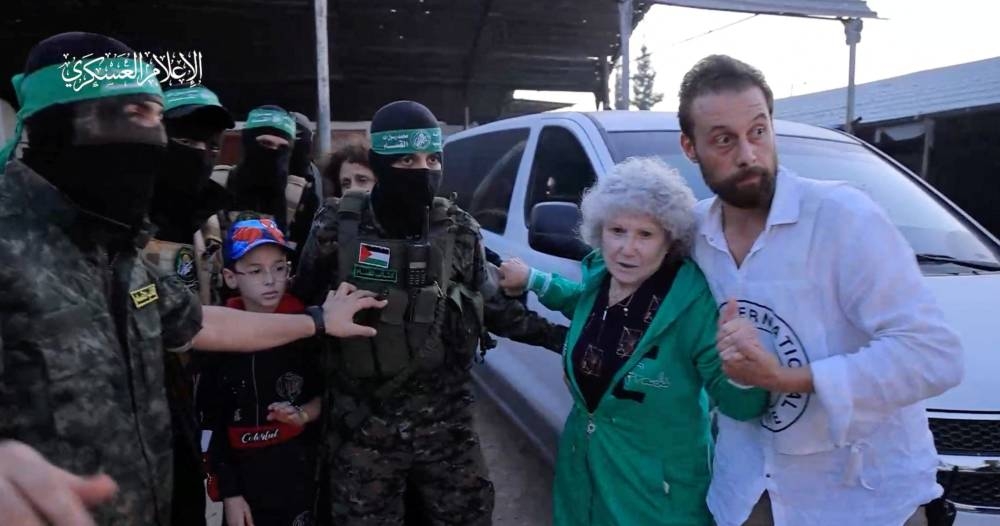
Israeli hostages are being handed over by Hamas to the International Red Cross, as part of a hostages-prisoners swap deal between Hamas and Israel amid a temporary truce, in an unknown location in the Gaza Strip, on Friday. Pictures: Hamas Military Wing/Handout via REUTERS
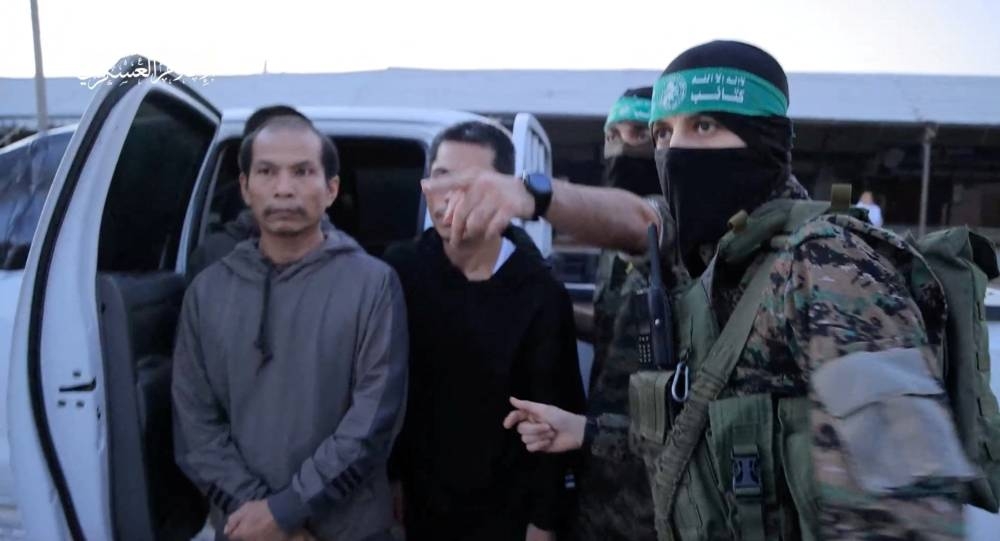
Israeli hostages are being handed over by Hamas to the International Red Cross, as part of a hostages-prisoners swap deal between Hamas and Israel amid a temporary truce, in an unknown location in the Gaza Strip, on Friday. Pictures: Hamas Military Wing/Handout via REUTERS
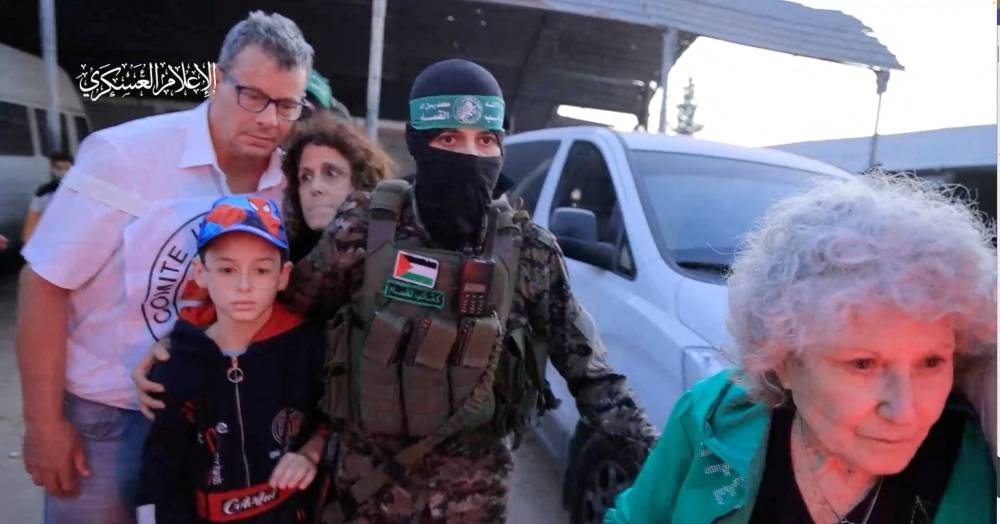
Israeli hostages are being handed over by Hamas to the International Red Cross, as part of a hostages-prisoners swap deal between Hamas and Israel amid a temporary truce, in an unknown location in the Gaza Strip, on Friday. Pictures: Hamas Military Wing/Handout via REUTERS
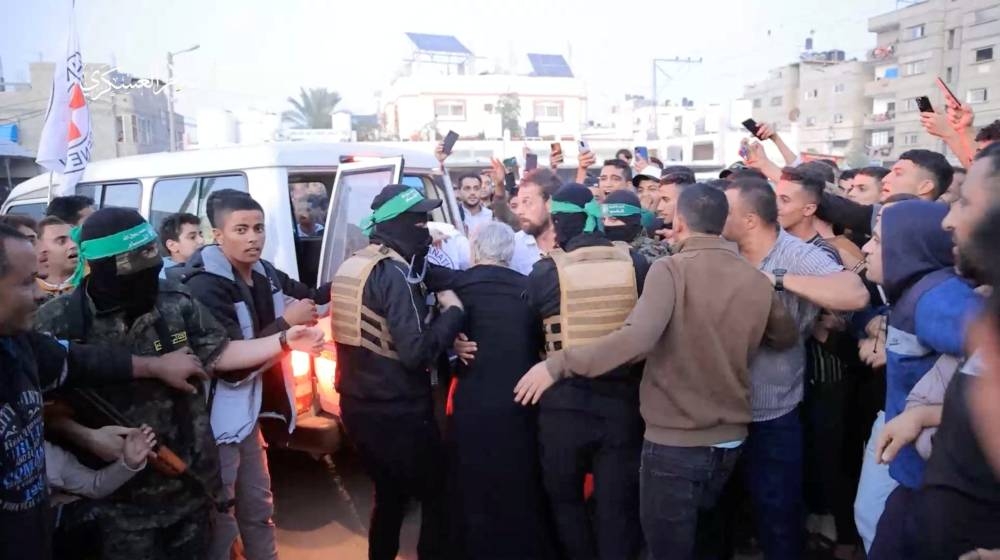
Israeli hostages are being handed over by Hamas to the International Red Cross, as part of a hostages-prisoners swap deal between Hamas and Israel amid a temporary truce, in an unknown location in the Gaza Strip, on Friday. Pictures: Hamas Military Wing/Handout via REUTERS
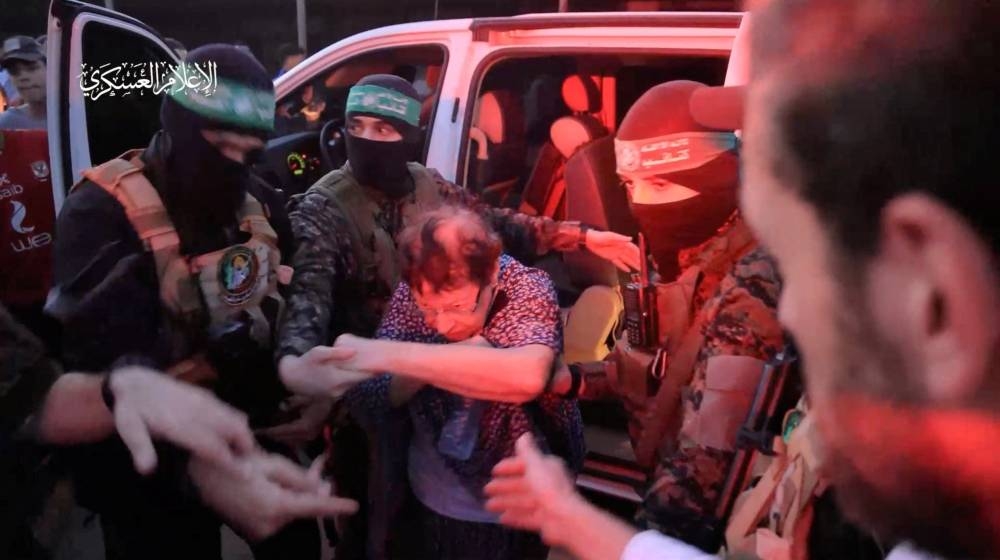
Israeli hostages are being handed over by Hamas to the International Red Cross, as part of a hostages-prisoners swap deal between Hamas and Israel amid a temporary truce, in an unknown location in the Gaza Strip, on Friday. Pictures: Hamas Military Wing/Handout via REUTERS
